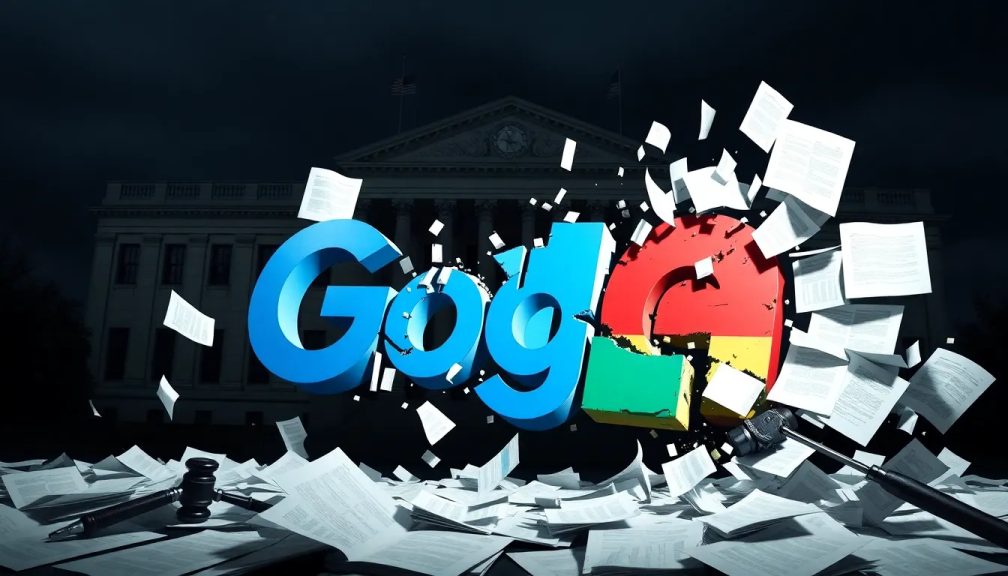DOJ seeks to dismantle Google ad business amid antitrust case

The ongoing antitrust case against Google is not just a legal battle; it represents a crucial juncture in the future of digital advertising and competition in the tech industry. As the Department of Justice (DOJ) resumes its arguments, the potential ramifications of the case could reshape the landscape of online advertising and influence regulatory approaches toward tech giants. Understanding the intricacies of this case is essential for anyone interested in the future of digital commerce and advertising.
- Background on the antitrust case against Google
- Google's proposed remedies and their implications
- The recurring theme of regulatory scrutiny on Google
- The influence of generative AI on the case
- International implications and the EU's stance
- Future outlook: What’s next for Google and the tech industry?
Background on the antitrust case against Google
The antitrust case against Google has its roots in the broader concerns about monopolistic practices within the tech industry. The DOJ argues that Google's dominance in the online advertising market stifles competition and innovation. The heart of the argument centers on Google's Ad Manager, which the government claims is inextricably linked to its alleged anticompetitive behavior.
In this lawsuit, the DOJ seeks remedies that are not merely cosmetic but aim to restore genuine competition within the advertising ecosystem. According to DOJ attorney Julia Tarver Wood, “Nothing short of a structural divestment is sufficient to bring meaningful change.” This statement underscores the seriousness of the government's position and its commitment to holding Google accountable.
Google's proposed remedies and their implications
In response to the DOJ's claims, Google has put forth its own proposal for remedies. However, legal experts consider this proposal largely a formality, as the company is expected to appeal any unfavorable ruling. Google's suggestions include:
- Making real-time bid amounts visible to all participants in auctions.
- Eliminating unified pricing rules to allow publishers to set diverse pricing floors.
- Committing not to reintroduce previous auction dynamics that favored Google, known as "first look" and "last look."
Despite these adjustments, critics argue that Google's proposals fall short of addressing the core issues of competition in the advertising sector. Google’s legal team contends that the government’s proposals could disrupt the advertising industry by effectively sidelining Google, which they claim has already taken sufficient steps to address the concerns raised.
The recurring theme of regulatory scrutiny on Google
This isn't the first time Google has faced significant scrutiny from regulators. The company has experienced similar challenges regarding its search engine practices. In those instances, arguments could be simply rephrased by replacing "Ad Manager" with "Chrome," illustrating a pattern in Google's defense strategies.
Google’s legal representatives, such as Karen Dunn, assert that the government's actions are excessive and detrimental to the industry. This has become a familiar refrain for the company, which has often positioned itself as innovator rather than monopolist.
The influence of generative AI on the case
In a surprising twist, Google has pivoted its narrative to incorporate the rise of generative AI into the discussion. Following the advent of AI technologies, Google argues that the landscape of digital advertising is evolving rapidly:
- Generative AI has transformed how advertisers engage with consumers.
- Tools developed by competitors like Meta and Perplexity demonstrate a robust and dynamic advertising market.
- Google posits that the DOJ is attempting to regulate an industry that is already undergoing significant transformation.
This framing of the case reflects Google's strategy to mitigate the perception of its market dominance by emphasizing the vibrancy of the advertising sector, which is now heavily influenced by AI capabilities.
International implications and the EU's stance
While the DOJ's case unfolds in the United States, Google's troubles are not confined to American borders. The European Union (EU) is also intensifying its scrutiny of Google’s advertising practices. Recently, the EU imposed a substantial fine on Google, amounting to €2.95 billion, citing the company's monopolistic behavior in the advertising market.
Regulators in Europe have indicated that if Google fails to propose a viable plan to address its market dominance, a breakup of its advertising business could be on the table. This prospect underscores the international dimensions of Google's antitrust woes, as different jurisdictions adopt varying approaches to regulating tech giants.
Future outlook: What’s next for Google and the tech industry?
The outcome of the DOJ's antitrust case will have far-reaching implications, not only for Google but for the entire tech industry. Legal experts predict that the decision could set significant precedents regarding how regulators approach issues of monopolistic behavior in technology.
As the case continues, observers are keenly watching for:
- The potential for structural divestment of Google's ad business.
- The impact of the case on innovation within the advertising sector.
- The broader consequences for regulatory approaches to other tech companies.
Regardless of the outcome, it is clear that the scrutiny faced by Google reflects a growing demand for accountability and fair competition in the digital marketplace.
As the case unfolds, those interested in the intersection of technology, law, and business should remain vigilant, as the implications of this battle will shape the tech landscape for years to come.
For further insights into the ongoing legal battle surrounding Google, you can check out this YouTube video:




Leave a Reply